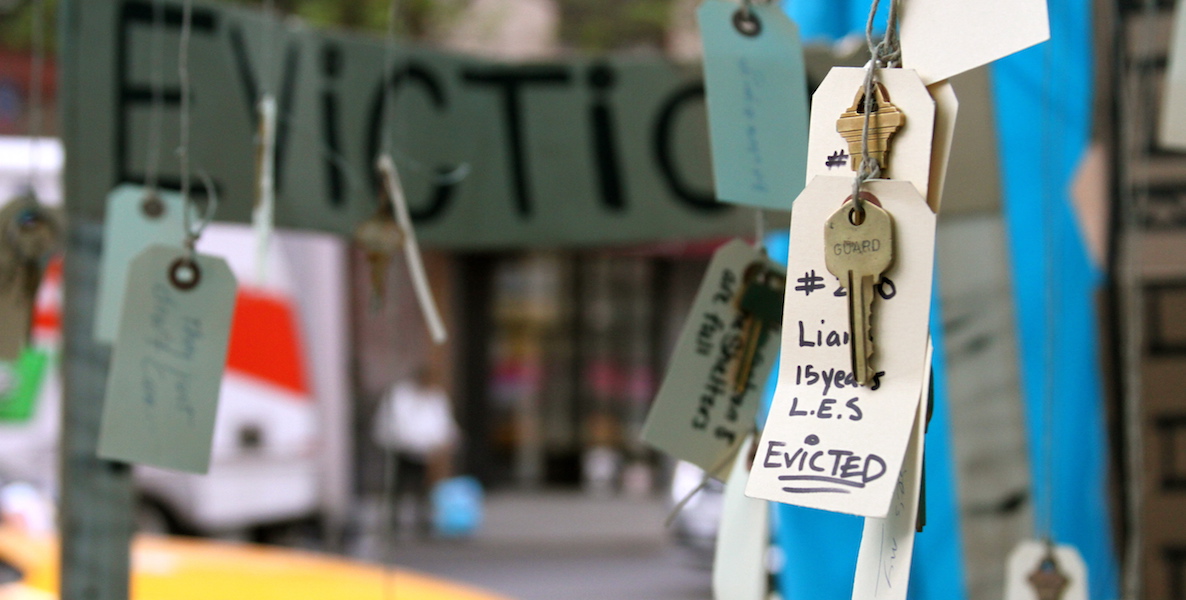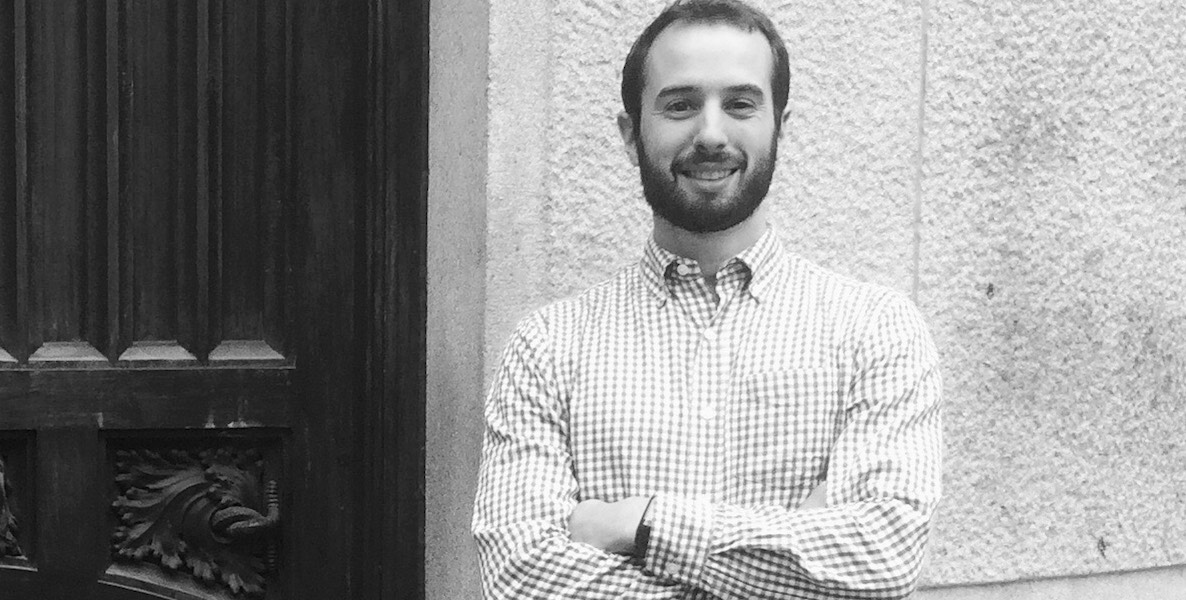When Ronald Reagan took office in 1981, tops on his to-do list was the destruction of the Legal Services Corporation, the federally-chartered funder of civil legal assistance for low-income Americans. Though Reagan ultimately failed to obliterate LSC altogether, his administration dramatically reduced its budget, imposed onerous restrictions on LSC lawyers, and appointed board members who were openly hostile to its mission. Caught in the crossfire, of course, were the nation’s LSC-funded legal assistance agencies and the hundreds of thousands of clients who relied on their critical services.
With the recent release of its cold-blooded federal budget proposal, the young administration of Donald Trump appears determined to prove that while it lacks Reagan’s penchant for sunny bromides and jellybeans, it has just as much contempt for America’s poor. And for the second time in 36 years, LSC is under the axe of a reactionary president seeking to defund it into oblivion. For those citizens who depend on free legal services and for the lawyers who earn their livings providing those services, the consequences will be calamitous.
Established in 1974 under one of the last bills signed into law by Richard Nixon but tracing its roots to the Great Society policies of the Lyndon Johnson era, LSC’s remit is the provision of equal access to justice through competitive grants to more than 130 legal services providers around the country. LSC-funded programs serve rural, urban and suburban clients with annual incomes at or below 125 percent of the federal poverty guidelines. Those clients, most of whom are female, include veterans, homeowners and renters, the working poor, children, older people, veterans, farmers and people with disabilities.
Through the years, LSC grantees have helped women and children obtain protective orders against domestic abusers, resolved landlord-tenant disputes, prevented home foreclosures and evictions, assisted military families, protected the elderly from predatory lenders, and provided a host of other services that have meant the difference between helplessness and hope for millions of vulnerable Americans.
For the second time in 36 years, LSC is under the axe of a reactionary president seeking to defund it into oblivion. For those citizens who depend on free legal services and for the lawyers who earn their livings providing those services, the consequences will be calamitous.
In Philadelphia, where a quarter of the population lives in poverty, the demand for free civil legal assistance is constant and urgent. According to Anita Santos-Singh, the executive director of the Philadelphia Legal Assistance Center, Philadelphia’s sole LSC grantee, some 32,000 residents sought access last year to PLA’s intake systems. But even operating at full capacity, acknowledged Santos-Singh, PLA had sufficient resources to help only 5,500 individuals.
Still, the assistance PLA does provide—including 2,889 mortgage foreclosure cases and the representation of nearly 1,200 victims of sexual assault, domestic violence, human trafficking and stalking—is nothing short of lifesaving. But since LSC funding comprises about 70 percent of her program’s total budget, Santos-Singh fears that ending LSC will mean the end of PLA itself. “If LSC disappears, so do all those services for people in need.”
Frank Devine was a young lawyer the first time LSC faced annihilation back in 1981. Now a senior trial lawyer at Pepper Hamilton LLP, and a former chancellor of the Philadelphia Bar Association, Devine still remembers the crisis wrought upon the city’s legal aid community when Reagan slashed LSC’s budget.
“Community Legal Services [Philadelphia’s LSC grantee at the time] had 96 lawyers then,” says Devine. “They were known for aggressively pursuing financial institutions on behalf of low income clients.” But when LSC funding was cut, CLS almost immediately “lost half its attorneys and staff.”
With more than 1,000 indigent clients suddenly needing new legal advocates, the Philadelphia Bar Association jumped into the breach. Members of the Bar Association’s leadership enlisted Devine and others to help develop the Philadelphia Volunteer Lawyers for Action Program, which signed up 705 Philadelphia lawyers in 1981 to help individuals who no longer had access to CLS.
The need for those volunteer attorneys was immense; not only had Reagan cut funding for legal services, he had compounded the problem for poor Americans by setting up new legal obstacles to obtaining disability benefits and other transfer payments. As a result, says Devine, “the demand tripled. Whatever benefits there had been, Reagan had instructed the government to deny initial applications.” That policy of denial meant protracted legal appeals requiring even more lawyerly hours and expertise.
By 1986, the renamed Philadelphia VIP (Volunteers for the Indigent Program) had hired its first executive director. More than 35 years since its inception, VIP continues to engage its extensive roster of volunteer attorneys from around Philadelphia’s legal community annually to assist more than 3,500 indigent Philadelphians referred by CLS, PLA and other legal assistance organizations.
Around the country, lawyers and legal organizations have spoken out passionately against Trump’s intention to defund LSC. The American Bar Association has asserted its staunch support for a “robust” LSC in a statement from its president, Linda A. Klein. Likewise, the Philadelphia Bar Association has pledged to “urge the rejection of any attempts to eliminate or decrease LSC funding in the coming budget cycle.” Dozens of leading law firms across the nation have also called upon the Trump administration to reverse course.
Even if a concerted effort by the legal lobby, influential law firms and other activist groups prevents LSC’s outright elimination, the road ahead will be treacherous. Organizations like Philadelphia VIP can help fill the void, but only to an extent. With massive reductions in federal financial support for low-income populations on the horizon, non-profits will have to reallocate even more precious time and energy to seeking charitable donations—a fickle and unstable source of funding even during the best of times.
In 2011, a study by the Pennsylvania Finance and Budget Committee and the Pennsylvania Interest on Lawyers’ Trust Accounts program concluded that for every dollar spent on legal aid, approximately $11 of quantifiable economic outcomes and savings were realized for all residents of Pennsylvania.
LSC is just one of many federal programs that President Trump has proposed to destroy. Like Meals on Wheels and lunch subsidies for public school children, which Trump’s budget director Mick Mulvaney has condemned for “not showing results,” the argument for killing LSC is based on a toxic combination of bad math and a time-honored right wing antipathy to the provision of services outside of a capitalist market.
Indeed, far from being an economic cost center, legal aid services generate a strong return on investment. For example, in 2011, a study by the Pennsylvania Finance and Budget Committee and the Pennsylvania Interest on Lawyers’ Trust Accounts program concluded that for every dollar spent on legal aid, approximately $11 of quantifiable economic outcomes and savings were realized for all residents of Pennsylvania.
By the same token, defunding LSC will have high governmental and societal costs. Santos-Singh predicts that, “Without the positive outcomes resulting from the provision of legal services, local government will have to step in. Without the early interventions that legal services provide, smaller addressable problems will in time lead to more serious problems.”
The poor, the disenfranchised, and the vulnerable are the immediate recipients of critical LSC-funded services. But the ultimate beneficiaries are the neighborhoods, towns, cities and states made safer, more prosperous and more equitable through broader avenues to legal recourse. That safety and prosperity are in peril, to say nothing of the aspiration for a more equitable society. At a moment that finds Americans more divided than we’ve been in a generation, we would do well to remember that an attack on access to justice is an attack not only against the least among us, but against all of us.
Alex Braden is an attorney in Philadelphia and a member, with Anita Santos-Singh, of the Board of Philadelphia VIP.
Photo header: PIxabay/AJEL






